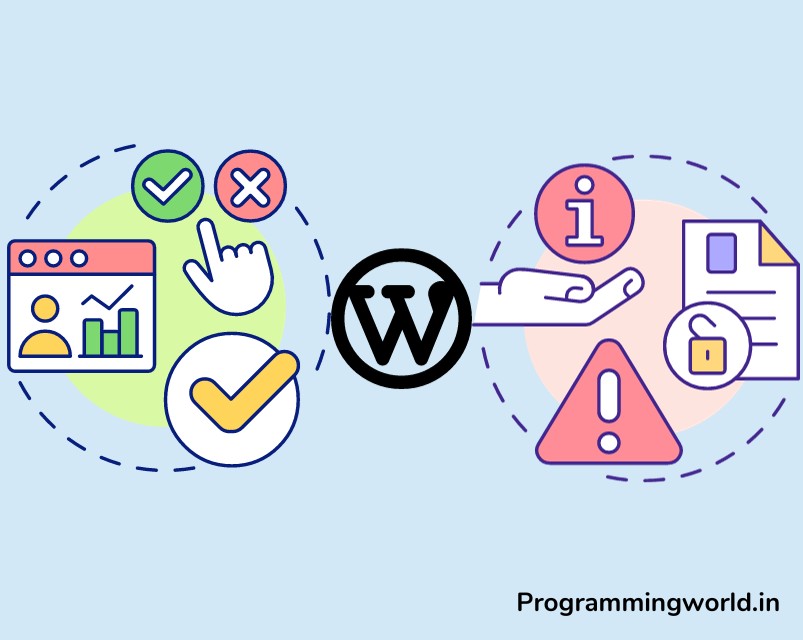WordPress is an open-source Content Management System(CMS). Its primary function is to build a wide variety of websites. It does not need users to learn various coding languages and is simple to use. WordPress is the most popular CMS in the world, with a market share of about a staggering 64.1%.
WordPress provides users with many features besides facilitating them in building a website. It offers more than 60K themes and north of 10K themes free of cost. WordPress is available in 205 different languages. It has become an industry in almost all the major markets in the world.
Table of Contents
Advantages of WordPress:
WordPress is a versatile tool for publishing and building websites. It has many advantages that have made it the market leader in the CMS segment. You can design your Custom Home Page, Custom Taxonomy Archive Pages, Custom Single Post Layouts in fact everything, with the help of page builder like Elementor.
Below are some advantages of WordPress:
- Interface
- Wide Range of Themes and Plugins
- Scalability
- Search Engine Optimization (SEO) Friendly
- Responsive
- Community and Support
- Security
1. Interface:
WordPress features an inherent and user-friendly interface. This makes it accessible to people with almost no technical knowledge. Even skilled coders tend to use WordPress due to its simple-to-use interface.
After all, who would like to write a 20-line code when the same result is possible with a few clicks?
2. Wide Range of Themes and Plugins:
WordPress has an extensive range of themes and plugins to choose from. A considerable number of these are free to use, while some are premium.
These customizable templates and add-ons allow users to personalize a website’s design. Website functionality personalization is also possible to meet specific needs.
3. Scalability:
WordPress can handle even large websites with ease. You can expand your website’s capability and offerings to any extent. Even complex E-commerce websites have expanded using WordPress. Close to 43% of websites on the internet use WordPress.
4. Search Engine Optimization (SEO) Friendly:
WordPress prioritizes user experience through seamless integration of themes and plugins. This creates professional and appealing websites. It enhances the visitor experience and bounce rates. It is a positive factor for SEO as Google rewards sites offering excellent user experience.
Customizable permalinks in WordPress simplify URL editing. It allows the creation of clean, keyword-rich links which benefit search engine rankings.
Managing SEO titles and metadata is effortless with plugins like Yoast SEO. Image optimization and automated alt text generation via plugins improve page load speed. WordPress provides the following features:
- Mobile Optimization
- Social media integration
- SEO plugins
- Compatibility with software tools
- Themes
These result in a comprehensive platform for SEO enhancement.
5. Responsive and Mobile Friendly:
As mobile internet usage continues to surge, the importance of a mobile UI increases. It benefits both user experience and search engine optimization. A majority of WordPress themes and designs are very responsive. This ensures a seamless and appealing experience on various mobile devices. WordPress sites receive over 400 million unique visitors each month.
6. Community and Support:
An essential benefit of WordPress lies in its open-source nature. WordPress lets developers use its code without the need to develop from scratch. The open-source ecosystem fosters collaboration among WordPress developers. This allows them to share code online. It not only accelerates website development but also reduces costs. No necessity for building codebases from scratch is also a significant factor. Expediting the implementation of considerable modifications also plays a role.
7. Security:
No platform can be immune to security threats. WordPress emphasizes security and issues frequent updates to rectify vulnerabilities. WordPress updates the website’s themes, plugins, and core software. This contributes to very high security.
Choosing a hard-to-crack password is the first step to secure your website and your user’s data. So make sure to have a strong password if not; Reset Your WordPress Admin Password immediately.
Disadvantages of WordPress
Websites suffer from a host of glitches and technical issues many times. Nothing in this world is perfect. Hence, WordPress also has its drawbacks and shortcomings.
Some disadvantages of WordPress are:
1. Hosting and Performance:
WordPress users need to outsource hosting needs for their websites. WordPress does not offer hosting services. Hosting can be a concern as it’s often self-managed. Issues like slow loading times and downtime can occur if not maintained. It can be challenging and tedious. Companies like Webflow include hosting as a part of their service. It simplifies maintenance and management.
2. Security Vulnerabilities:
There are a host of security issues in WordPress.
Outdated core software risks associated with using obsolete themes and plugin vulnerabilities for cyber threats such as malware and credit card skimming. Unauthorized logins and undefined user roles can compromise the site’s privacy. SQL injections and SEO spam can harm functionality and reputation. Cross-site scripting
denial-of-service attacks, phishing, and supply chain attacks are also prevalent. Tools like Webflow provide robust built-in security measures and automatic updates. This enhances website safety.
3. Cost of Operating:
Although WordPress in itself is free to use, costs can add up when we factor in extra services. Hosting, premium themes, plugins, and developer fees for customizations. Some website builders offer all-in-one pricing, which can be more cost-effective. This eliminates the need for separate hosting and third-party add-ons.
4. Plugin Issues:
WordPress stands as a versatile platform, offering an array of customization possibilities. This versatility introduces complexities, particularly related to plugin use. Given the vast number of choices, establishing the optimal setup can prove perplexing. Overindulgence in plugins can hamper website speed, undermining user experiences. While plugins bolster website functionality, they harbor inherent downsides. Inefficient coding, incompatibility with counterparts, and security susceptibilities pose threats. Balancing customization and performance is vital for WordPress users navigating this dynamic landscape.
5. Customisation Limitations:
This is the biggest drawback of WordPress. Creating custom features or a distinctive layout can be a daunting task. Although WordPress offers customization options, its scope has limits. Achieving ground-breaking innovations may need hiring a developer, thereby increasing website development expenses.
Summing Up
WordPress is the most popular platform for website development in the present day. Like everything else in this universe, it has its strengths and weaknesses.
Yet, the strengths and advantages of WordPress far outweigh its weaknesses. Its disadvantages can be overcome with the necessary skills and technical know-how.
All these facts reinstate how great and versatile WordPress is.
After all, there has to be special magic in WordPress for it to be the absolute market leader.
WordPress is an open-source Content Management System(CMS) used for building a wide variety of websites. It does not need users to learn various coding languages and is simple to use. WordPress Stats show that it’s the most popular CMS in the world, with a market share of about a staggering 64.1%.
WordPress provides users with a number of features in addition to facilitating them in building a website. It offers more than 60K themes and north of 10K themes free of cost. WordPress is available in 205 different languages, and it has become an industry altogether in almost all the major markets in the world.




